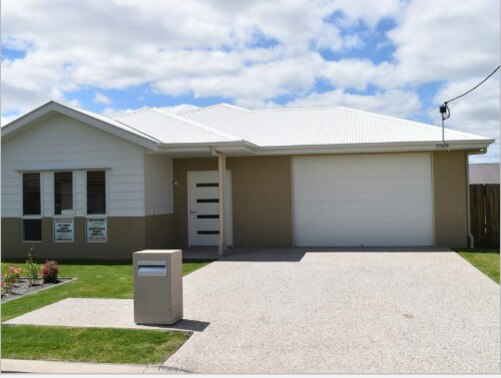First Warwick home designed to cater for people with disabilities revealed
The amazing home designed specifically to cater to people with disabilities has been unveiled, with its designer hoping it will improve the standard of living for those across the region. Read the inspiring story.
Warwick
Don't miss out on the headlines from Warwick. Followed categories will be added to My News.
Initially, you’d be right to believe that it was simply a normal home, on first glance it looks as unassuming as any house in town.
However, for people with disabilities, Warwick’s first Specialist Disability Accommodation approved house is an absolute godsend, and much needed.
The three-leveled house features rooms fitted with ceiling hoists, disability accessible bathrooms, self contained rooms with bathrooms and kitchenettes and automated features.

Resident Natalie Nolan, alongside the NDISP organisation, was inspired to create the home after seeing so many people in town that could use the house to improve their quality of life.
Mrs Nolan said that she hopes it will give people living with disabilities more independence and freedom.
“The goal was to get young people out of nursing homes and into living arrangement similar to flatmates so they have a better quality of life and independence,” Mrs Nolan said.
This new home would be the first of its kind in Warwick and all of South-West Queensland, and provides an alternative to people from that larger region rather than moving to Toowoomba or Brisbane.
“There’s such a need for it in Warwick, I see people every day with carers and I wonder where they live, there’s no accommodation in town that would make their lives easier.
“It gives freedom, families can come visit and go whenever they want, as opposed to nursing homes that have visiting hours, people with disabilities are entitled to have much of their younger years as possible and the freedom that comes with that.
Mrs Nolan hopes that the complex will inspire others to develop similar styles of independence facilities in rural areas which currently do not have them.
“It was a difficult process and I’ve learnt a lot on the journey, but I’d do it again in a heartbeat because they need the facilities here.”




